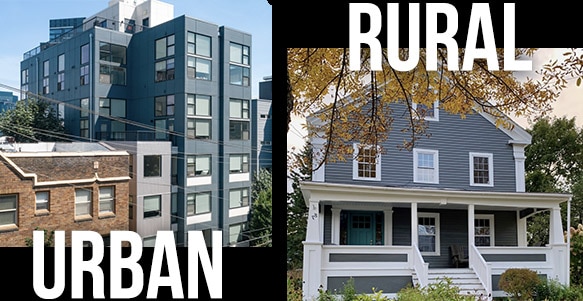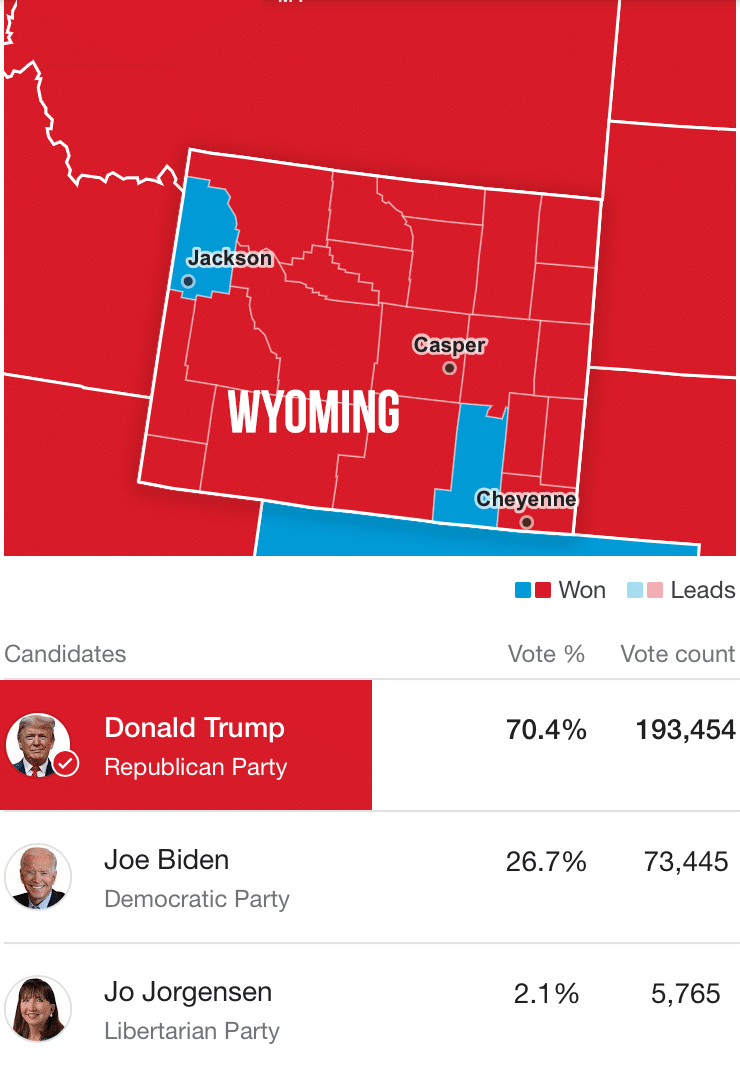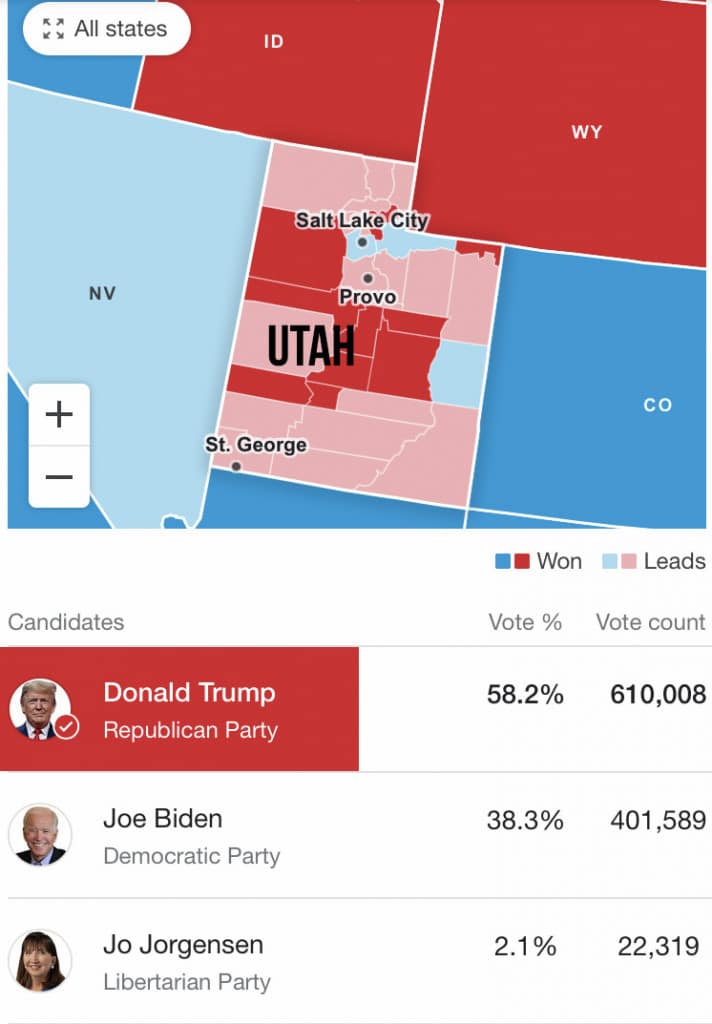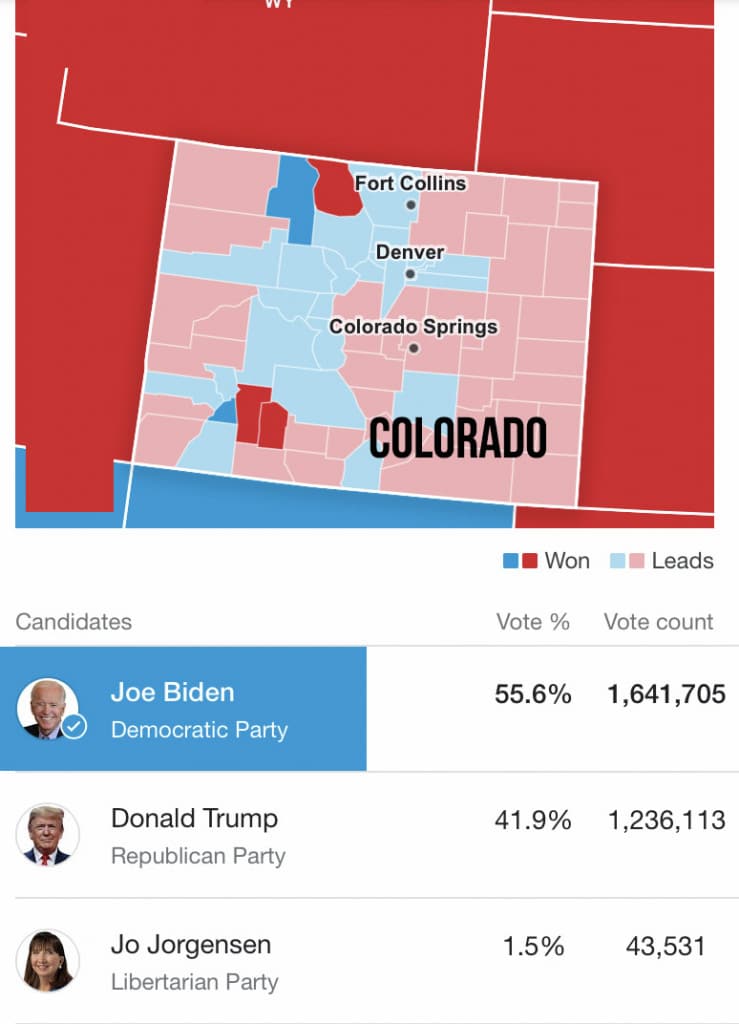
It comes as no big surprise that once again what all of the pollsters and “experts” have been saying for the past few weeks is completely wrong. I have been gripping a lot about how much disdain I’m feeling for my peers in main-stream media because they are the reason why our country is becoming so divided.
It seems today (if you watch the news) everyone is firmly stationed in one camp or the other. This is simply untrue. I think that average voters change political parties and often cross the isle to vote for candidates of a party which they don’t normally vote for. Also, the values of voters can dramatically shift based on where they live. Just one observation in examining the election results:
Nearly everyone in heavily populated areas voting for Biden and the Democrats; and nearly everyone in lesser-populated areas in red voting for Trump and the Republicans? This is because American values are actually very consistent depending if you live in a city or a much lesser populated small town. This is actually not that difficult to figure out why:
If you live in a city you want:
- Clean air
- Clean water
- Local businesses
- Freedom from oppressive corporate power
- Open spaces, parks, trails
- environmental protection
- Good transit and good walkable sidewalks
- Freedom from religion dictating laws
If you live in a rural area or a smaller municipality you want:
- Low taxes
- High-paying Jobs
- Less regulation to start your own business
- Freedom from the government
- Freedom to use your land to make income
- Good hunting and fishing grounds
- Freedom to buy guns (to protect all of the above)
- Freedom to practice religion
These are pretty much universal values to everyone who lives in these places in America. And if we examine all of the polling maps dividing red from blue, since one party who calls themselves Democrat espouses the city values, and another party that calls themselves Republican espouses rural values, and if everyone comes out to vote in rural areas (as they did this election), then pollsters will inevitably get the results wrong, because nobody can predict voter turnout.
We are told by the media and the left that all rural Trump supporters “the basket of deplorables” “racists” “rednecks” and want to destroy the environment because this is all the media is really doing today: tribal fighting using hyperbole.
When you cover both the city and rural areas, as we have been doing for the past twelve years at Utah Stories, journalism and human interest stories rise above politics and ideologies, and we find that everyone could actually get along great if they just sat down and talked. Anybody living in a rural place like Montana or Wyoming will certainly identify and lean far more libertarian, because both the landscape and livelihoods of the people who live there, can only afford to stay there with small government, low taxes, little regulation and a means of making a living. Are these people deplorable for wanting to make a living and voting Trump? Unfortunately the federal government possesses so much power that the small “less intrusive” government will of these rural areas will eventually be overwhelmed by the will of the voters in larger cities, thus further depopulating places like Wyoming, which has far more cattle than people. Utah’s rural areas will also be adversely impacted as more city dwellers buy second or third homes in these areas, and non-residident home owners have no interest in aiding the local economy nor witnessing job creation, especially if it could adversely impact property values. Examine how Wyoming’s blue is only where billionaires like to buy real estate– in Jackson Hole.
The same goes for Utah — Summit County has become a home for billionaires who want to hang out in Park City and Deer Valley, and Grand County, where far more non-native residents are buying real estate in Moab is now blue. Colorado has tipped far into the blue, as more Easterners and California residents have migrated there (who adhere to their city values over rural values).



As news consumers the media (and especially the left) is attempting the most significant cultural change in American: turning our politics into our religion. They do this as they essentially attempt to labeling people by their intersectionality (whites vs. blacks vs. latinos vs asians). And they further the religionization of politics by limiting free speech. The new heretics are those who fail to adhere to party talking points and ways of thinking. This is the case for environmental policy, population control, and race relations. Speaking out of line could easily get someone labeled as a sexist, bigot, racist, homophobe, so rather than debate important issues they want their followers to chant, attend protests, repeat slogans and not think.
This is unfortunate because our country is strong when we debate and talk to each other about ideas and opinions. Our country’s strength has always been from being able to speak with those with whom we are likely to disagree. (our interview with Lex Scott from Black Lives Matter). And to understand and differentiate the nuances of arguments on either side of the aisle.
Twenty years ago at the University of Utah, I grew to truly love the spirit of “civil discourse” and debate. Even if things became a little heated. This was when my ideas and notions of being a staunch conservative were challenged by a very bright roommate I had from Madison, Wisconsin who was a staunch Liberal. He wasn’t a whako as I presumed. We discussed his ideas, about the problems with multinational corporations essentially buying off and working with big governments to exploit resources and cheap labor. He changed my mind in my belief structure.
I only hope after this election we can still speak to people with whom we might disagree. Freedom will never exist if we can no longer speak, debate, argue and create unsafe spaces for our ideas, ideologies, and opinions.





